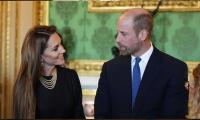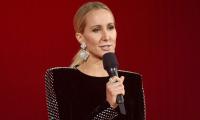Islamic banking yet to attain prime objective of eliminating poverty: Ishrat
PESHAWAR: Former governor of the State Bank of Pakistan and Dean of the Institute of Business Administration (IBA), Karachi, Dr Ishrat Hussain said here Wednesday that the Islamic banking system was yet to attain its prime objective of eliminating poverty and leading an economic activity in the country.
He was speaking at the first two-day International Conference of the Centre of Excellence in Islamic Finance (CEIF).Dr Ishrat Hussain said back in 2009 there was soul- searching to find an alternative paradigm under which the positive aspects of the international finance system could be preserved and promoted while its destabilising and negative dimensions could be averted.
He said the Islamic finance was seen as an opportunity and possibility of advancing it as a possible alternative means of financial intermediation and reliable instrument of promoting inclusive growth and reducing the economic inequalities in Asia and the world, particularly sub-Saharan Africa.
Dr Ishrat Hussain said the Islamic financial service industry has been growing 50 percent faster than conventional financing.“The annual average growth rate of the Islamic financial assets globally has been about 20 percent and the total volume of the assets has gone up to Rs2 trillion. Still it forms only one percent of the global financial assets. So we are nowhere near or aim to become an alternative to the international financial system,” he said.
Dr Ishrat Hussain added that Islamic finance was an attractive proposition to stabilise the international financial system as it is backed by real assets and the financial returns are linked to real sector activity in this system.
“It is not creating paper over paper like the collateral debt obligations raised to cubes, which is the financial engineering done before 2008 and 2009 where one did not know as to where the real asset behind this financial engineering existed. Similarly, there is no fixed and predetermined rate of return and the investors’ rate of return is based on the performance of the underlying assets so the exotic and artificially-contrived instruments, which have been a bane of the global financial system, cannot be part of the Islamic financial system,” he opined.
He said these two attractive features and attributes can potentially overcome the shortcomings of the existing system and provide stability that has proved elusive so far.
Dr Ishrat Hussain said the Islamic financial system was introduced some 10 years ago but there has not been much change in poverty alleviation or financial inclusion as according to the SBP only 23 percent of the people have access to the formal finance.
“Poverty has not been reduced to the extent we would expect. And inequalities are actually rising in the country,” he maintained.
He said, “If the major objective of the Islamic finance was that access to finance would be available to all segments of the society and it would only be through the inclusive finance that assets can be created which will take to the wealth and income generation, then the distribution of that wealth and income should take place equitably. Only then we will say the economic inequality and poverty will be reduced. Unfortunately, this has not been the case and we could not reach even to the level of expectations with which we started the Islamic finance in the country,” he added.
He said the reason for this was that the Islamic banks continued to tread along the same path as the commercial banks by doing conventional banking reaching the small borrowers. “The professionals being posted in the Islamic banks have also mostly been drawn from the conventional banking system. Therefore, the centres of excellence set up in the LUMS, IBA and IMSciences have very important role to produce professionals for the Islamic banking system in the country,| he said.
Dr. Mehboob-ul-Hasan, professor at King Saud University, Saudi Arabia, said there was a dire need for a vision to develop system parallel to conventional banking system to eliminate injustice in both conventional and Islamic banking system.
In his welcome address, Dr Muhammad Mohsin Khan, Director, IMSciences stated that they are working on a vision for self-sustained Centre of Excellence for Islamic Finance recognized nationally and internationally for the contribution and dissemination of deeper understanding of Islamic Finance and its practices and enhancement of financial inclusion within society.Over 37 research papers would be presented during the two-day conference.
-
 Prince William Always Ready To Step Up: ‘He’s Barely Able To Contain His Fury When Kate’s Involved’
Prince William Always Ready To Step Up: ‘He’s Barely Able To Contain His Fury When Kate’s Involved’ -
 Florida Woman ‘tricked Innocent Movers Into Helping Her’ $7k Burglary: Report
Florida Woman ‘tricked Innocent Movers Into Helping Her’ $7k Burglary: Report -
 Harry Deserves Top Protection As King Charles’ Son, Prince William’s Brother
Harry Deserves Top Protection As King Charles’ Son, Prince William’s Brother -
 Meghan Markle Receives Key Advice As Experts Warn She’s Doing Too Much
Meghan Markle Receives Key Advice As Experts Warn She’s Doing Too Much -
 Kelly Clarkson Weighs In On Life Without The Father Of Her Children
Kelly Clarkson Weighs In On Life Without The Father Of Her Children -
 Paul Mescal, Gracie Abrams Committed To 'long Distance' Relationship: Source
Paul Mescal, Gracie Abrams Committed To 'long Distance' Relationship: Source -
 Street Fight Turns Bloody As Innocent Bystander Shot In The Face
Street Fight Turns Bloody As Innocent Bystander Shot In The Face -
 Tom Blyth Shares His Two Cents On The Importance Of Rom Coms
Tom Blyth Shares His Two Cents On The Importance Of Rom Coms -
 Jennifer Lawrence Opens Up About Her Most Demanding Film Role
Jennifer Lawrence Opens Up About Her Most Demanding Film Role -
 Nikki Glaser Shares Set Of Rules For Roasting Stars At 'Golden Globes'
Nikki Glaser Shares Set Of Rules For Roasting Stars At 'Golden Globes' -
 Prince Harry Risks Overshadowing Invictus Games With Royal Drama
Prince Harry Risks Overshadowing Invictus Games With Royal Drama -
 Daily Fish Oil Supplements Intake May Reduce Cardiovascular Risks, Heart Problems
Daily Fish Oil Supplements Intake May Reduce Cardiovascular Risks, Heart Problems -
 Pamela Anderson Gets Honest About New Exciting Role
Pamela Anderson Gets Honest About New Exciting Role -
 Alexander Skarsgård Reveals Harsh Views On Fame
Alexander Skarsgård Reveals Harsh Views On Fame -
 Prince Harry’s Anxiety About Archie, Lilibet’s Safety In School Comes Out: ‘There’s Guns!’
Prince Harry’s Anxiety About Archie, Lilibet’s Safety In School Comes Out: ‘There’s Guns!’ -
 Charlie Hunnam Reveals Why He Has Stopped Reading Reviews: 'I Don't Need'
Charlie Hunnam Reveals Why He Has Stopped Reading Reviews: 'I Don't Need'



